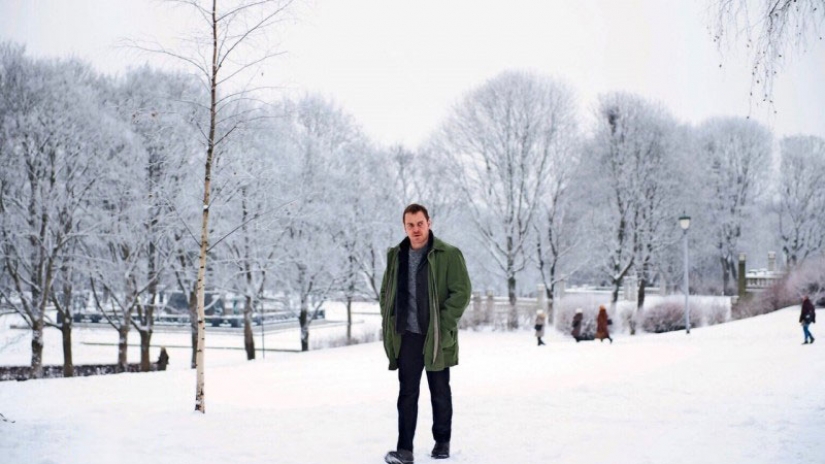
Backlash against progressive Nordic feminism haunts every flake that falls on The Snowman as surely as it haunted the ancestral homes and unwelcoming streets of the Millennium films. More explicitly social-minded than its Swedish cousin, it similarly peels back Scandinavian society’s peaceful veneer to expose the rotten heart of patriarchy still pumping its poison through its veins, but its enterprise is brought down by a combination of external incompetence and internal laziness.
Based on the seventh entry of a best-selling series of novels, The Snowman follows alcoholic Norwegian detective Harry Hole (Michael Fassbender) and young academy graduate Karine Bratt (Rebecca Ferguson) as they investigate a string of abductions and murders of married mothers, each disappearance signalled by the presence of a mysterious snowman on the scene of the crime. Their task is complicated by Hole’s messy family life and Karine’s own private motives in finding the killer.
The Snowman’s problems are apparent from its very first sequence, in which a single mother’s physical and sexual abuse at the hands of her brother-in-law drives her to commit suicide in front of her young son. All potential tension is killed by distractingly poor dubbing and slapdash editing that rushes scenes without giving characters time to establish their presence or meaningfully connect to each other in-between shots. These unmistakable signs of studio interference rob the sequence of emotional cohesion and turn what should be a harsh and devastating turn of events into an overwrought mess.
The tampering doesn’t get any less obvious or damaging once the opening credits have rolled: you could make a drinking game out of the number of scenes that open with dialogue dubbed over transitional exterior shots of cars, trains or buildings. Flashbacks of a previous case investigated by a poorly-dubbed Val Kilmer come and go without justification. Characters never settle comfortably in a properly-spaced universe, instead moving mechanically from one set to the next with only dialogue and plot as connective tissue.
More damningly, this butchery exposes the screenplay’s formulaic nature and its undercutting of the story’s examination of post-feminist male anxieties. The killings reflect Hole’s own struggles with his ex-girlfriend and a son who may not even be his, but rather than being thoroughly explored, these parallels are spelt out repeatedly as if they were an insight in and of themselves. This absence of reflection is further compounded by the ultimate fates of the primary female characters, who end up as little more than motivators to help Fassbender get his masculine groove back.
In a tragically ironic way, The Snowman’s narrative and aesthetic failures make it a mirror of its own characters: buried under the weight of patriarchal patterns it perceives but does not understand, condemned to uncritically reproduce them while searching for a way out. A director’s cut DVD release might, at best, make the plot more cohesive and better flesh out the characters, but it is unlikely to correct such a fatal lack of vision.



